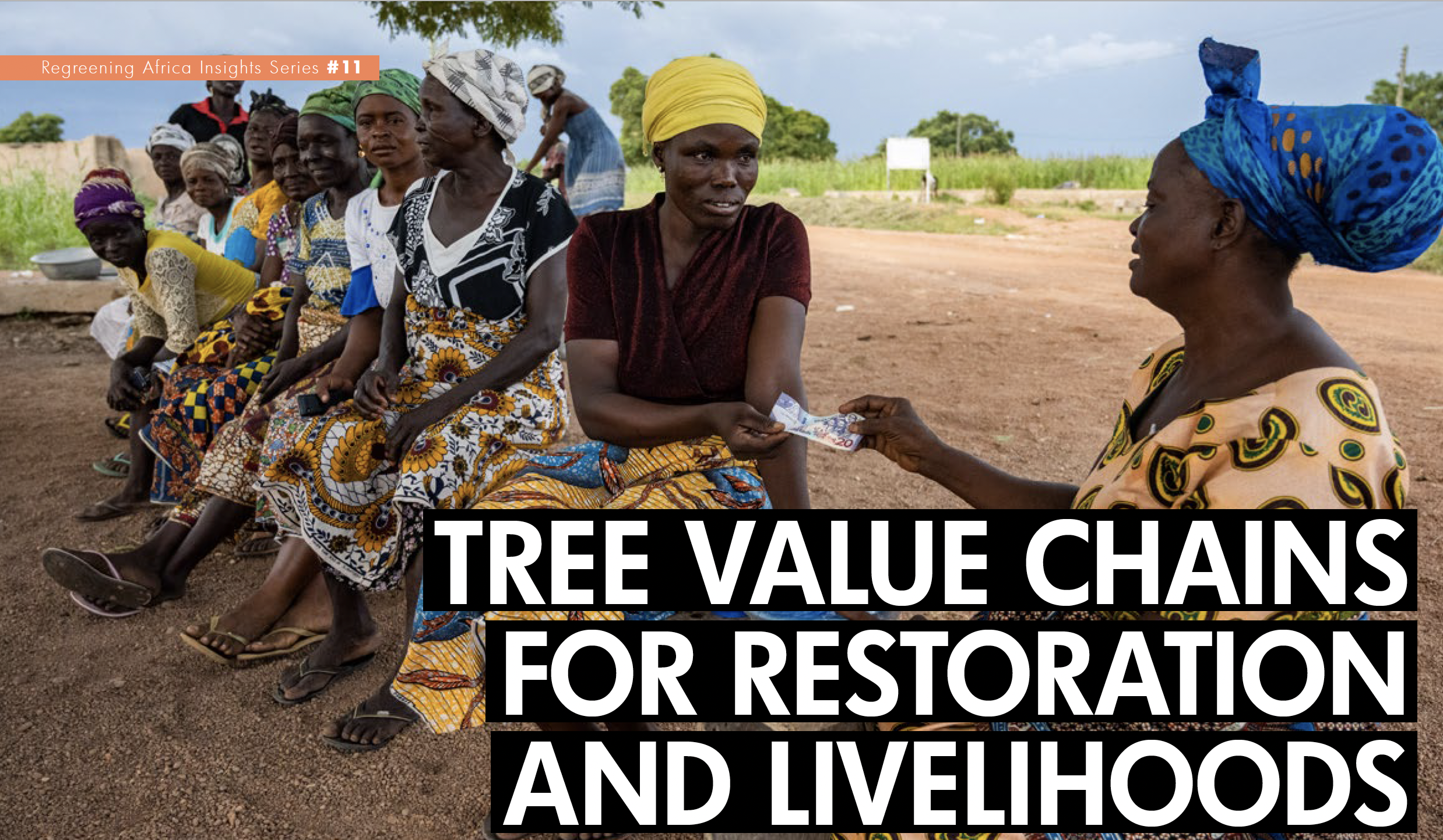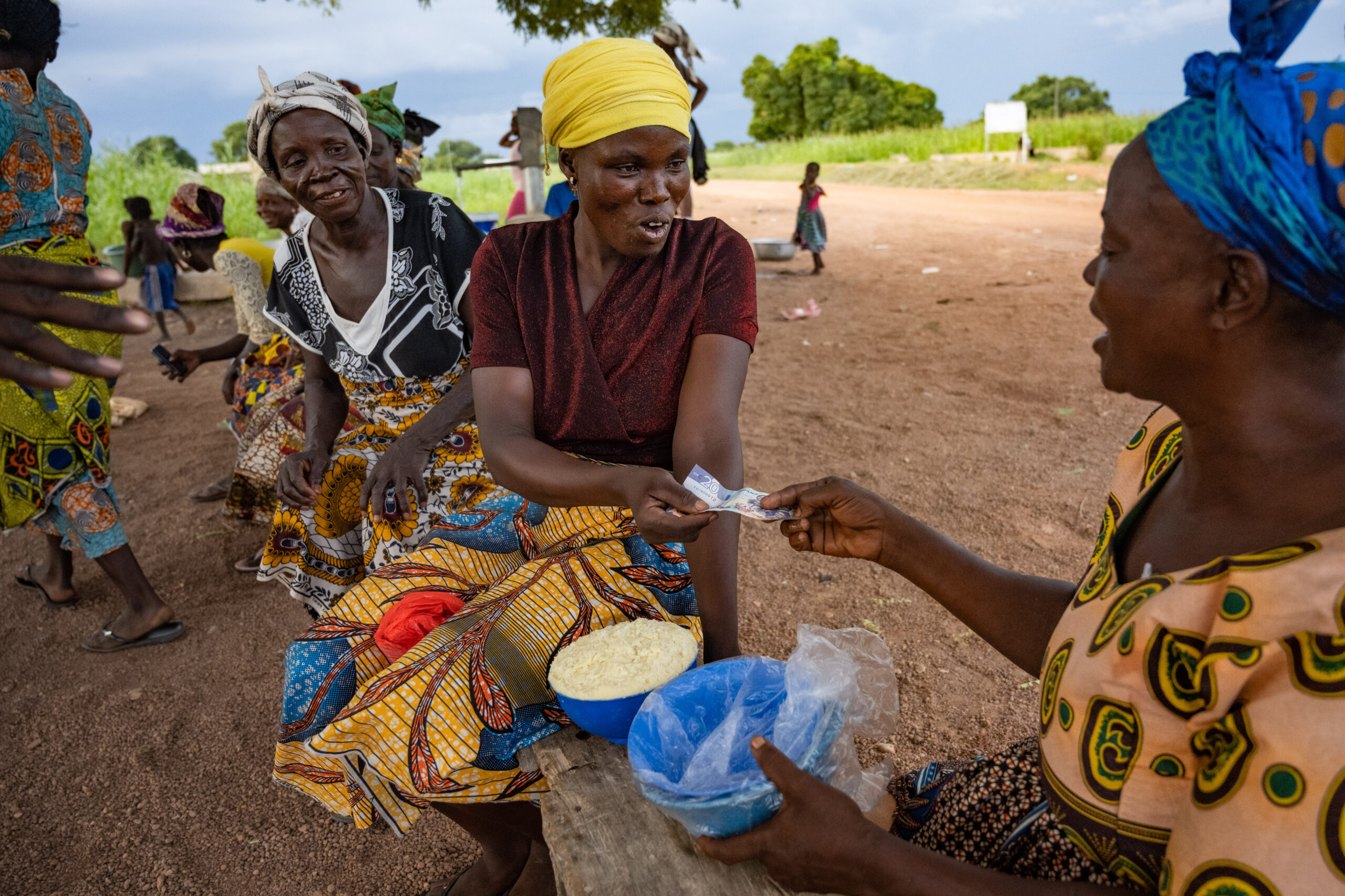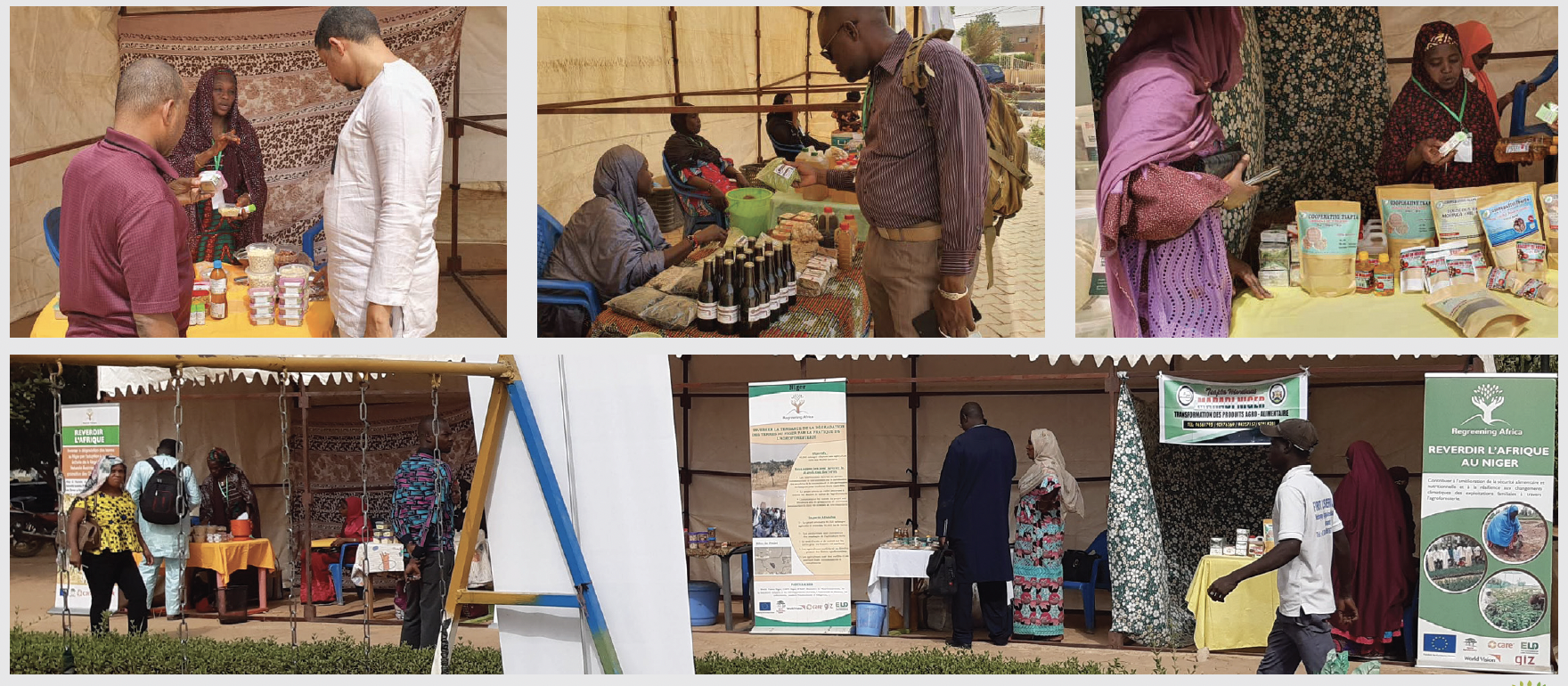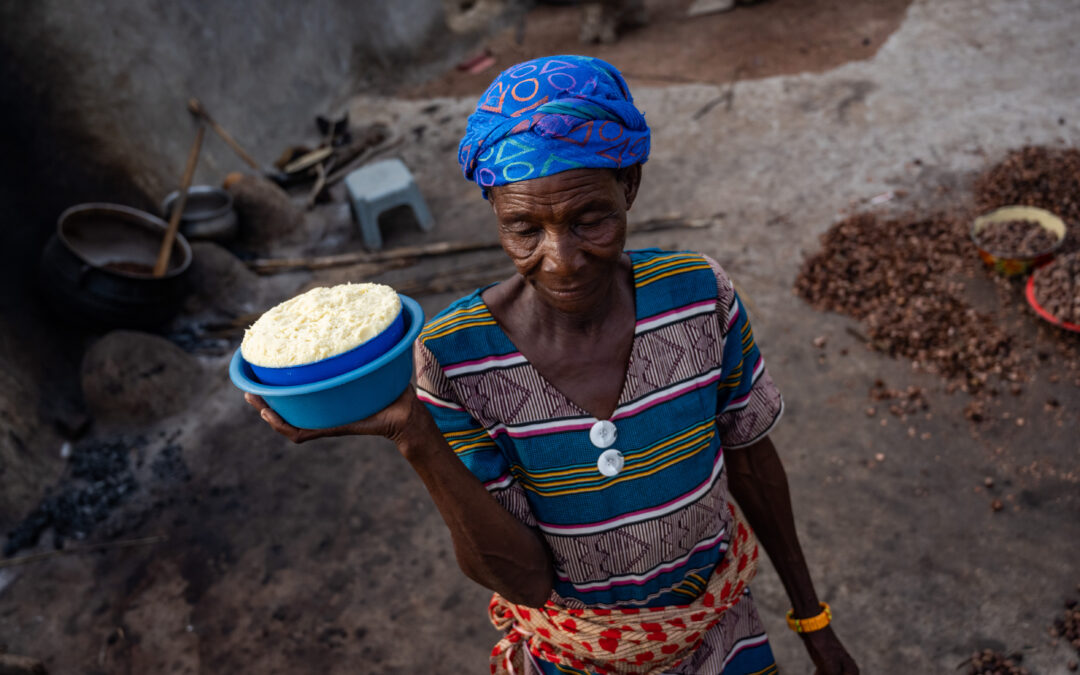The successful implementation of regreening hinges on strong value chains that incentivise reinvestment in agriculture and agroforestry. Tree-based value chains provide an opportunity to develop community-based businesses, improve employment for rural women and youth, and diversify income streams, thus building empowerment and supporting food security.
Here we highlight some products from Regreening Africa on value chains.
As part of the Regreening Africa Insights Series, this brief shares key insights on tree value chain development and the learning on stimulating local incentives and business opportunities.
Key insights include:
- Tree value chain development options can no longer be ignored even in short 3 to 5 year projects, as opportunities for improvements are abundant and results can be very impactful, especially for most vulnerable community groups such as women and youth. An adaptive approach to identification and prioritisation of value chain opportunities is needed.
- There is incredibly limited capacity among important change agents to develop and backstop tree-based value chains. The lack of mandated institutions has not helped develop a policy frame for investments.
- We need to facilitate locally driven and locally based livelihoods that enhance rather than degrade natural resources management, benefit women, and engage them in decision making.
- Business sustainability plans needed with specific strategies that support government and an enabling environment, consider gender aspects and assess growth potential and market share conditions.
- Projects can identify and focus on specific elements of tree product value chain development in order to increase chances of success, rather than dwell on developing complete chains and fail. A well thought-out plan involving inputs from other stakeholders is important.
- Continuous stakeholder involvement is needed to address prohibitive policies.
- A focus on improving the operations of value chain actors in a domestic market can provide a faster means for improving profitability and value in participating in these chains. In particular, improved support for value chain actors in certification/ licencing/registration/ branding/labelling/packaging processes increases their value in the market, allowing high and sustained incomes.
- Product diversification is crucial due to seasonality, needs and preferences across contexts.
- Developing tree nursery enterprises is a successful way to promote regreening, especially nurseries for timber and fruits (e.g. Rwanda, Ethiopia, and Mali) where previously farmers depended on government seedling production for forestry with emphasis on few species, no fruits, and to reliance on temporary/seasonal nurseries.
- Short maturity tree crops development with emphasis on moringa, tree tomato, grafted mango, gesho leaves, baobab leaves, avocado and grafted ziziphus in the Sahel and East Africa invariably supported restoration efforts through home-gardening plans in spaces managed and controlled by women.
- Local business opportunities from farmer-managed natural regeneration (FMNR) plots such as honey production, livestock fodder from cut and carry systems and firewood obtained from pruning earn farmers money to support household needs, as found in the project’s work in Kenya and Ethiopia.
You can find the insight brief here.

August 11 to 12, 2022, Regreening Africa’s implementation partners, ICRAF, OXFAM and SAHEL ECO, organised a national forum on Parkia biglobosa (néré) and Vitellaria paradoxa (shea) value chains at the Bamako National Park in Mali.
The objective of the national forum was to promote visibility and communication efforts on the development of agroforestry value chains and to promote the creation of links between the different actors to support sustainable market access and services.

On March 30 to 31 in 2022 in Niamey, Niger the value chain forum was held to:
- Improve visibility on Regreening Africa’s development of Zizyphus mauritiana and Balanites aegyptiaca value chains in Niger.
- Promote co-learning and experience sharing between partners and projects to encourage or support the development of Zizyphus mauritiana and Balanites aegyptiaca value chains.
- Provide an opportunity for local, regional and national actors to exhibit their products and services, leveraging the development of these value chains.
- Promote public-private partnerships and network relations between actors.
- Facilitate a direct link between local chain actors and potential buyers and service providers.
The national tree value chain forum was devoted to information and experience sharing and provided a good opportunity for information sharing between
NGO’s and Government actors on tree value chain development.


